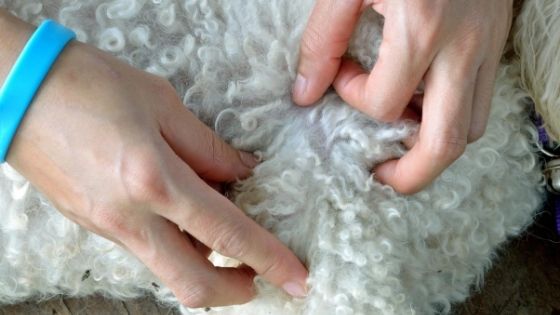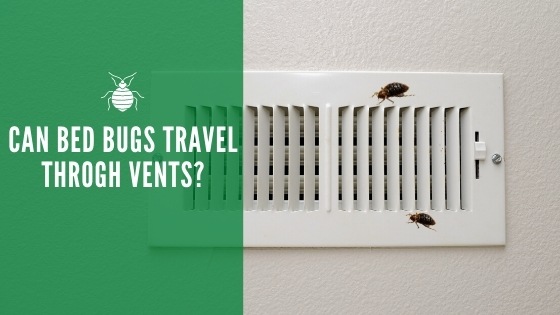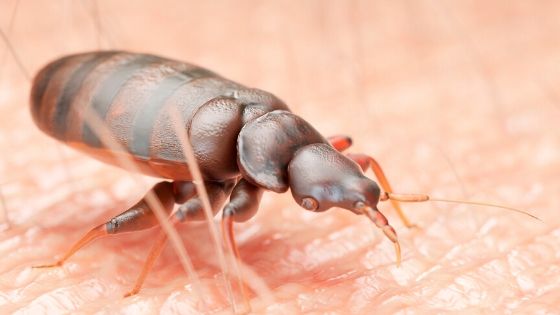What Kills Bed Bug Eggs?
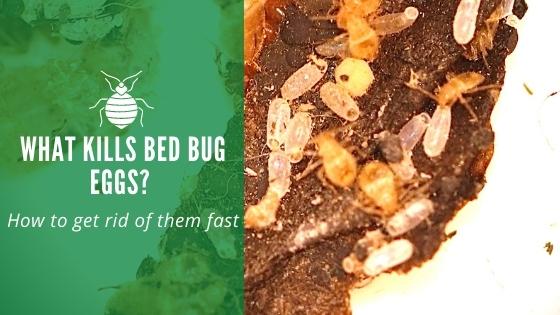
Along with head lice, bed bugs are another common parasite that tends to carry a lot of stigmas. Finding these tiny insects doesn’t mean that your house is dirty. They’ll invade any place they can find a human host, and you’ll even find them in five-star hotels. Knowing how to kill their eggs is the key to feeling comfortable having people over again and enjoying a good night’s sleep.
What Do Bed Bug Eggs Look Like?
If you picture a bug that’s only about the size of an apple seed, then you can probably get a good idea of how tiny the eggs are that they lay.
These eggs are around the size of a pinhead, and their pearl-white color makes them blend in with those bright white sheets. Older eggs might have a black eyespot in the center, but even those can be hard to see.
Where Should You Look for Bed Bug Eggs?
The bed is the most obvious place to find eggs. Typically, the bugs will lay their eggs in somewhat hidden areas of your sleeping space, such as the mattress seams. You might also find eggs hidden in tiny crevices and the bed frame and headboard, such as in the cracks where the pieces are joined together.
The eggs might also be away from the bed. The insects crawl away from their host after feeding for the night, and they’ll hang out in the carpet seams and behind loose pieces of wallpaper. You’ll also want to check the inside of drawers, especially any that hold bed linens or clothing.
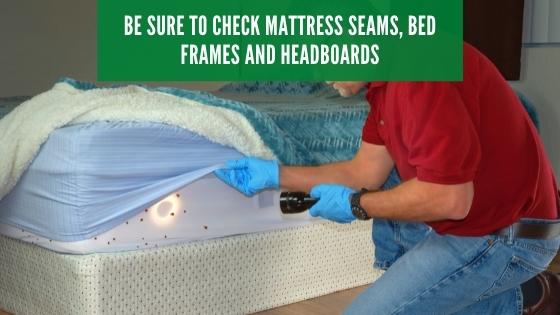
If the infestation has spread enough, you may find eggs in the living room and any other area with furnishings made from soft fabric materials. Couches are a common culprit for infestations. It’s best to avoid bringing second-hand furniture into your home unless you inspect everything carefully for signs of bugs and their eggs.
Can You Carry Bed Bug Eggs On Your Clothes?
Unfortunately, you don’t have to share a bed to pick up the eggs. People also transfer eggs to other places when they fall off of their clothing. If bed bugs set up a home in your bedroom dresser, this could happen. When they lay their eggs on your clothing, you might accidentally carry them when you leave your house for the day.
People have transferred eggs to their coworkers when they share lockers. You can also carry them on your shoes if you frequently visit other people’s homes. Social workers, salespeople, and others who enter strangers’ houses regularly often bring a change of clothes and shoe covers to avoid bringing infestations home with them at the end of the day.
How Many Eggs Will a Bedbug Lay?
A bed bug will live about two to four months, and a female can lay around 250 eggs during that time. It’s fairly common to have several generations of bed bugs in one house, and their prolific reproduction is one of the reasons why infestations get out of control so fast.
If you don’t catch an infestation for several months, you could have thousands of eggs hanging around just waiting to hatch. This is one of the reasons why DIY methods tend to fail. It’s simply impossible to get every egg on your own once the infestation gets extensive.
How Often Do Bed Bug Eggs Hatch?
Once an egg is laid, it’ll hatch in about six to 10 days. This is why people are often cautioned to continue to check for these insects for several weeks after treatment.
However, keep in mind that you could see new eggs hatching as soon as the day after you do a treatment if you opt for one that doesn’t kill them. Since individual bugs lay their eggs at different times, there’s usually one or more ripe for hatching at any moment.
Do Foggers Kill Eggs?
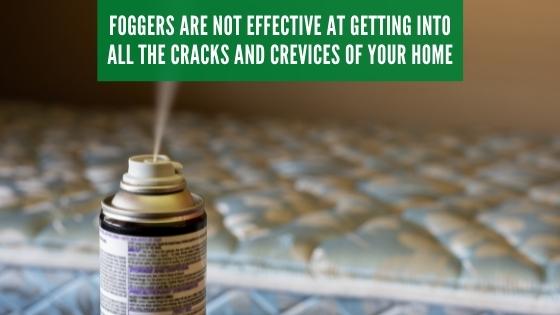
Chemical aerosol sprays are often what people first turn to when dealing with pest problems. While a fogger will kill some bugs, the chemical cloud isn’t always strong enough to penetrate an egg or even adult insects hiding in cracks and crevices around your home.
Can You Just Vacuum the Eggs Up?
Vacuuming is another DIY strategy that can help you find some temporary relief from seeing the most noticeable bugs and their eggs. You will want to use extreme caution with vacuuming since it doesn’t kill the eggs or adult bugs. Instead, you’ll simply be transferring them from one place to another.
If you choose to vacuum for peace of mind while you wait for professional help, you’ll want to remember to remove the vacuum cleaner bag or the canister’s contents outside your house. Then, place them in a disposable sealed container for proper removal in the outgoing garbage.
After you finish, inspect the vacuum brush and hose for signs of any bugs or eggs that might’ve been left behind. Wiping down the vacuum cleaner is also recommended.
What Kills Bed Bug Eggs Naturally?
Many people prefer to limit the use of chemicals in their house due to allergies or having young children or pets. Bed bug eggs are vulnerable to the effects of high heat, which provides you with the most natural method for killing them.
While heat is effective, it’s important to know that simply turning up your home’s heating system isn’t going to do the trick. Instead, the eggs need to be exposed to temperatures of 118 degrees Fahrenheit or higher for at least 90 minutes to kill them all completely.
Professional pest technicians use portable heating devices that make it possible to get entire rooms or even a whole house up to this temp. While you’ll need to leave your home until everything cools down, this is the fastest, safest, and most efficient way to kill bed bugs and eggs.
The best part about using the heat method is keeping all of your belongings. Saving your furniture, clothing, and kids’ toys makes it easier to get back to living like you never even saw one of these troublesome insects or their eggs.
If the thought of leaving a single egg behind keeps you up at night, then you don’t have to lose sleep over getting rid of an infestation. Those tiny eggs might be fairly hardy, but not even the toughest one can withstand a professional heat treatment that kills them before hatching.
Now that you know how to find them make sure to inspect your sleeping areas regularly. If you spot an egg, then address the problem head-on. Burying your head in the pillow will get you nowhere, and early treatment is the best way to restore comfort to your bedroom.

